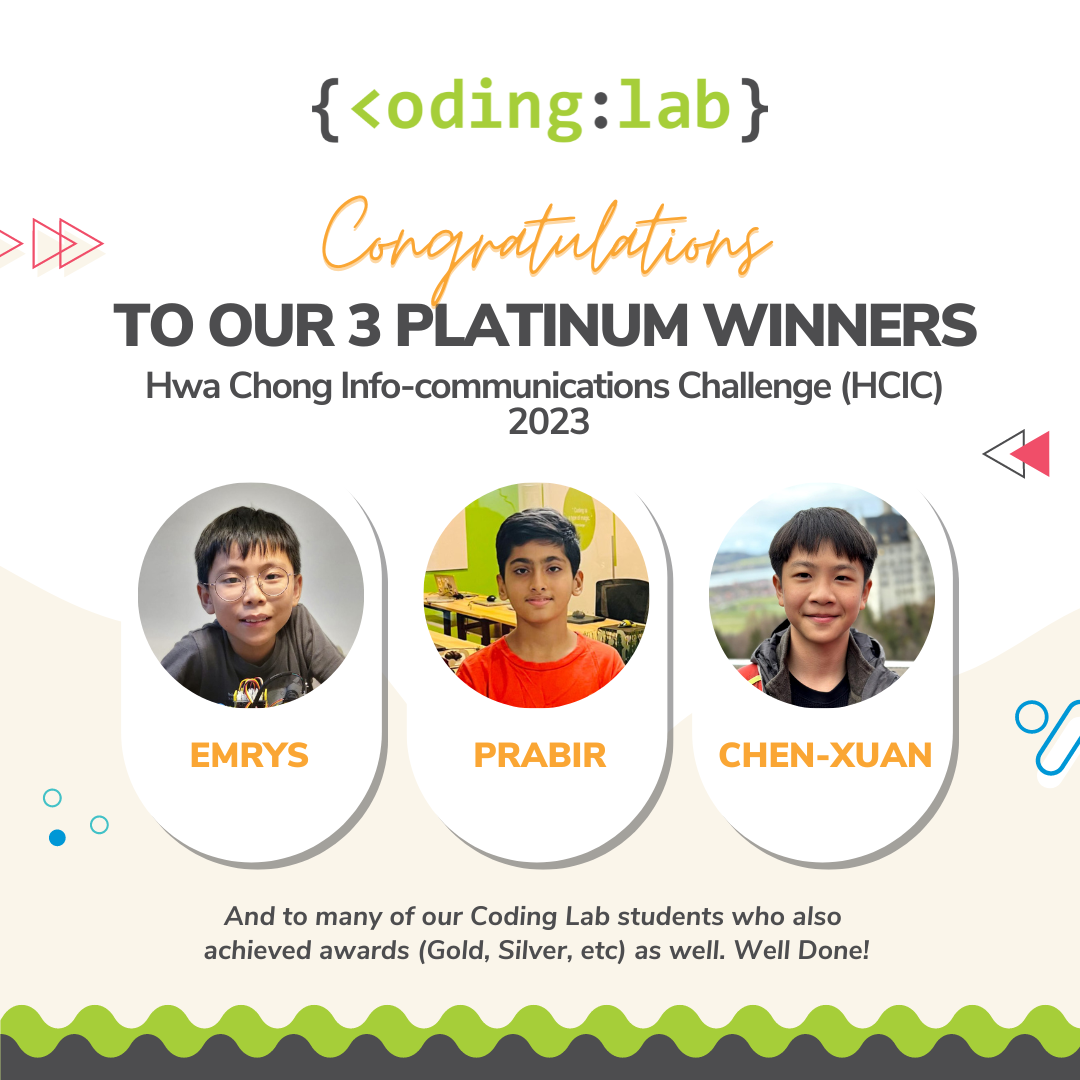Our Classes > Academics
Academics
Our programmes have helped numerous students gain an edge in their academic journey. From DSA preparation and consultation, to tuition for Computing subjects, to winning Olympiad medals, our programme sets our students apart.
A Rigorous Program that Drives Results
Experience our award-winning curriculum that has turned learns into winners of National and Global competitions. Crafted by our MIT-alumnus founder, our well structured learning roadmap will give your child a technological edge, as demonstrated by numerous students achievements
DSA Preparation
From 2018, all secondary schools offer up to 20% of their places through DSA and have stopped using general academic abilities tests for DSA. Got a dream school? Our all-rounded coding curriculum gives our students a winning edge and our DSA Preparation programme prepares them for the Direct School Admission (DSA) programme. We don’t just hone their coding skills, we also build their confidence and competence to excel in interviews.
-
Ages 8 to 12 with the intention to DSA into Secondary Schools
-
Customised to student’s DSA goals
Customised
GCE ‘O’ Level Computing Tuition
We understand that learning Computing can be challenging as it is new to most students. At Coding Lab, our experienced teachers will provide necessary support and guidance to help our students master the subject. With comprehensive proprietary notes, practice questions organised by topics and difficulty, mock exams modelled after past year O level papers and rigorous programming exercises our students are geared to excel.
-
Students taking GCE ‘O’ Level Computing as a subject
-
1 session per week, 2 hours per session
Maximum 1:8 Instructor-Student ratio.
Olympiad (NOI) Preparation
Designed and taught by top IOI and multiple NOI Gold Medallists, combined with the signature Coding Lab style of instruction, this course is conducted over one and a half years to prepare students for the NOI competition.
Selected students will receive best-in-class coaching to giving them a high chance of succeeding and attaining a medal in the competition.
-
Completed S100P and recommended by tutor, or
Pass Coding Lab selection test
-
Weekly 2-hour online classes
Total course duration is approximately 18 months
Maximum 1:12 Instructor-Student ratio
PDSA-HCIC - HCIC Preparation
We’ve been training students for the HCIC since its inception. Our student was awarded the Champion in 2019, and since then, the number of students attaining top awards at this prestigious competition has grown. In 2023, three of our students won Platinum, the top award in the competition.
-
Ages 11 - 12 and
Completed S112 - Python 2
If your child does not currently meet the prerequisites, please contact us to work out an acceleration plan.
-
10 hours
All materials and equipment provided
Maximum 1:10 Instructor-Student ratio.
Loved by both Parents and Students
“There’s so much that you can do just using variables, functions, and loops! I understood this when I was learning Python, but only truly appreciated it when I began learning algorithms and C++ to take part in the NOI.”
Sarah Go, 17, Hwa Chong International
“My son got into his Secondary School of choice with the expert guidance of Coding Lab! Thank you for all your help and guidance.”
Father of Avinesh, 12
““The class is very interesting and the teacher has taught me Computing in intriguing ways.”
Miguel, 15, Montfort Secondary School, improved from F9 to A1 in 3 months
“his class has helped me excel in my Computing skills and has helped me improve tremendously!”
Ethan, 16, ACS Barker'22, achieved a grade of A2 for the GCE 'O' Levels
“Concepts were conveyed clearly and easily understandable.”
Alex, 16, St Patrick's Secondary, improved from E8 to A1 for Prelims
Our students have been awarded accolades locally and globally.
Read more raving reviews, meet our students or check out our students’ achievements!





